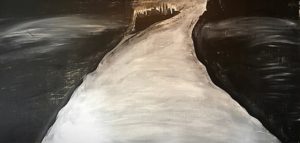March 30, 2020
By Arthur H. Gunther III
thecolumnrule.com
The life-sobering of young people today in this coronavirus world, already shaken to an unsteady footing by Sept. 11, other terrorism, endless military conflict and the hypocrisy shown by often ineffective, bumbling, special interest-driven leadership, is not without historical precedent.
The Holocaust, wartime Europe 1914-1918 and 1939-1945, many nations’ civil wars, dictatorships, plagues and today’s horrific conditions in parts of the Middle East, Africa and the Americas took and continue to steal childhood. That is the greatest sin of humankind, the willowing of the future as they lack nurturing. The world is supposed to be the mother.
Each generation, every young person, confronts obstacles, walls too high to climb, though with the progress and enlightenment that are also part of the world’s evolution, so many are matured to bring spectacular achievement, caring, kindness, giving and compassion.
And most young in war and crisis also exhibit unbelievable sacrifice.
In 1959, teenagers like myself, living comfortably, mostly in blue-collar families with parents who were thankful for employment after surviving the Great Depression and World War II, were presented with two films that began our sobering, albeit relatively mild compared to today.
We saw “The Diary of Anne Frank” and placed our hearts, minds and souls in that Dutch attic with a fellow teen. Our own family dynamics of siblings battling over what to watch on TV suddenly seemed so embarrassingly small compared to that in secret space, the Frank family and shopkeeper Kraler who hid them constantly worried that the Nazis would come.
Life played out, though, as did Anne’s destiny.
We also watched “On the Beach,” which portrayed Australians following a global nuclear war and the coming end of all life on earth.
Gone, suddenly, was our very limited exposure to the Cold War and the possibility of hydrogen bombs hitting America. We were never sobered by the school air-raid drills, even thankful to get out of class and put our bodies against the hall lockers instead of the earlier practice of hunkering under desks.
We emerged from the theater in silence, not joking as usual. The walk home with friends after “On the Beach” added a few years to our growing maturity. Yes, gaiety, a blessing for some youth, those in our circle anyway in our small, typical post-war U.S. village, would continue. There would be proms, graduations, further schooling, jobs, families, but newfound seriousness joined our being, infused within.
Today, it is not just two life-changing films. It is a pandemic, not seen since my the 1918 flu of my mother’s time, when she lost siblings. This is as big a challenge to the world as universal war.
Our young will be overwhelmingly sobered, and the hope is that their natural optimism, vitality and strength will, after the cataclysm, rebuild society and the earth. They can, as adults, better prepare us for another viral assault. They can work against the numbness of inefficient national leadership. They can better empathize with and care for those who have less, who even in the best of times are poor and destitute. The greed can lessen, the hypocrisy reduced.
There can be a better world from the young who now are sobering.
The writer is a retired newspaperman.


